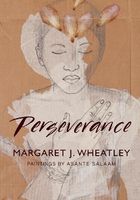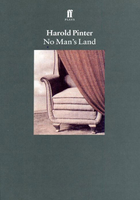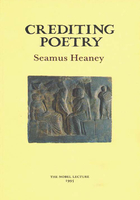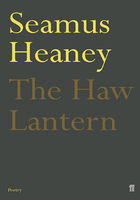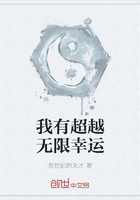The spring was advancing, and the weather had turned suddenly warm. This change of temperature brought with it for me, as probably for many others, temporary decrease of strength. Slight exertion at this time left me overcome with fatigue-sleepless nights entailed languid days.
One Sunday afternoon, having walked the distance of half a league to the Protestant church, I came back weary and exhausted; and taking refuge in my solitary sanctuary, the first classe, I was glad to sit down, and to make of my desk a pillow for my arms and head.
Awhile I listened to the lullaby of bees humming in the berceau, and watched, through the glass door and the tender, lightly-strewn spring foliage, Madame Beck and a gay party of friends, whom she had entertained that day at dinner after morning mass, walking in the centre-alley under orchard boughs dressed at this season in blossom, and wearing a colouring as pure and warm as mountain-snow at sun-rise.
My principal attraction towards this group of guests lay, I remember, in one figure-that of a handsome young girl whom I had seen before as a visitor at Madame Beck's, and of whom I had been vaguely told that she was a "filleule," or god-daughter, of M. Emanuel's, and that between her mother, or aunt, or some other female relation of hers, and the Professor, had existed of old a special friendship. M. Paul was not of the holiday band to-day, but I had seen this young girl with him ere now, and as far as distant observation could enable me to judge, she seemed to enjoy him with the frank ease of a ward with an indulgent guardian. I had seen her run up to him, put her arm through his, and hang upon him. Once, when she did so, a curious sensation had struck through me-a disagreeable anticipatory sensation-one of the family of presentiments, I suppose-but I refused to analyze or dwell upon it. While watching this girl, Mademoiselle Sauveur by name, and following the gleam of her bright silk robe (she was always richly dressed, for she was said to be wealthy) through the flowers and the glancing leaves of tender emerald, my eyes became dazzled-they closed; my lassitude, the warmth of the day, the hum of bees and birds, all lulled me, and at last I slept.
Two hours stole over me. Ere I woke, the sun had declined out of sight behind the towering houses, the garden and the room were grey, bees had gone homeward, and the flowers were closing; the party of guests, too, had vanished; each alley was void.
On waking, I felt much at ease-not chill, as I ought to have been after sitting so still for at least two hours; my cheek and arms were not benumbed by pressure against the hard desk. No wonder. Instead of the bare wood on which I had laid them, I found a thick shawl, carefully folded, substituted for support, and another shawl (both taken from the corridor where such things hung) wrapped warmly round me.
Who had done this? Who was my friend? Which of the teachers? Which of the pupils? None, except St. Pierre, was inimical to me; but which of them had the art, the thought, the habit, of benefiting thus tenderly? Which of them had a step so quiet, a hand so gentle, but I should have heard or felt her, if she had approached or touched me in a day-sleep?
As to Ginevra Fanshawe, that bright young creature was not gentle at all, and would certainly have pulled me out of my chair, if she had meddled in the matter. I said at last: "It is Madame Beck's doing; she has come in, seen me asleep, and thought I might take cold. She considers me a useful machine, answering well the purpose for which it was hired; so would not have me needlessly injured. And now," methought, "I'll take a walk; the evening is fresh, and not very chill."
So I opened the glass door and stepped into the berceau.
I went to my own alley: had it been dark, or even dusk, I should have hardly ventured there, for I had not yet forgotten the curious illusion of vision (if illusion it were) experienced in that place some months ago. But a ray of the setting sun burnished still the grey crown of Jean Baptiste; nor had all the birds of the garden yet vanished into their nests amongst the tufted shrubs and thick wall-ivy. I paced up and down, thinking almost the same thoughts I had pondered that night when I buried my glass jar-how I should make some advance in life, take another step towards an independent position; for this train of reflection, though not lately pursued, had never by me been wholly abandoned; and whenever a certain eye was averted from me, and a certain countenance grew dark with unkindness and injustice, into that track of speculation did I at once strike; so that, little by little, I had laid half a plan.
"Living costs little," said I to myself, "in this economical town of Villette, where people are more sensible than I understand they are in dear old England-infinitely less worried about appearance, and less emulous of display-where nobody is in the least ashamed to be quite as homely and saving as he finds convenient. House-rent, in a prudently chosen situation, need not be high. When I shall have saved one thousand francs, I will take a tenement with one large room, and two or three smaller ones, furnish the first with a few benches and desks, a black tableau, an estrade for myself; upon it a chair and table, with a sponge and some white chalks; begin with taking day-pupils, and so work my way upwards. Madame Beck's commencement was-as I have often heard her say-from no higher starting-point, and where is she now? All these premises and this garden are hers, bought with her money; she has a competency already secured for old age, and a flourishing establishment under her direction, which will furnish a career for her children.
"Courage, Lucy Snowe! With self-denial and economy now, and steady exertion by-and-by, an object in life need not fail you. Venture not to complain that such an object is too selfish, too limited, and lacks interest; be content to labour for independence until you have proved, by winning that prize, your right to look higher. But afterwards, is there nothing more for me in life-no true home-nothing to be dearer to me than myself, and by its paramount preciousness, to draw from me better things than I care to culture for myself only? Nothing, at whose feet I can willingly lay down the whole burden of human egotism, and gloriously take up the nobler charge of labouring and living for others? I suppose, Lucy Snowe, the orb of your life is not to be so rounded: for you, the crescent-phase must suffice. Very good. I see a huge mass of my fellow-creatures in no better circumstances. I see that a great many men, and more women, hold their span of life on conditions of denial and privation. I find no reason why I should be of the few favoured. I believe in some blending of hope and sunshine sweetening the worst lots. I believe that this life is not all; neither the beginning nor the end. I believe while I tremble; I trust while I weep."
So this subject is done with. It is right to look our life-accounts bravely in the face now and then, and settle them honestly. And he is a poor self-swindler who lies to himself while he reckons the items, and sets down under the head-happiness that which is misery. Call anguish-anguish, and despair-despair; write both down in strong characters with a resolute pen: you will the better pay your debt to Doom. Falsify: insert "privilege" where you should have written "pain;" and see if your mighty creditor will allow the fraud to pass, or accept the coin with which you would cheat him. Offer to the strongest-if the darkest angel of God's host-water, when he has asked blood-will he take it? Not a whole pale sea for one red drop. I settled another account.
Pausing before Methusaleh-the giant and patriarch of the garden-and leaning my brow against his knotty trunk, my foot rested on the stone sealing the small sepulchre at his root; and I recalled the passage of feeling therein buried; I recalled Dr. John; my warm affection for him; my faith in his excellence; my delight in his grace. What was become of that curious one-sided friendship which was half marble and half life; only on one hand truth, and on the other perhaps a jest?
Was this feeling dead? I do not know, but it was buried. Sometimes I thought the tomb unquiet, and dreamed strangely of disturbed earth, and of hair, still golden, and living, obtruded through coffin-chinks.
Had I been too hasty? I used to ask myself; and this question would occur with a cruel sharpness after some brief chance interview with Dr. John. He had still such kind looks, such a warm hand; his voice still kept so pleasant a tone for my name; I never liked "Lucy" so well as when he uttered it. But I learned in time that this benignity, this cordiality, this music, belonged in no shape to me: it was a part of himself; it was the honey of his temper; it was the balm of his mellow mood; he imparted it, as the ripe fruit rewards with sweetness the rifling bee; he diffused it about him, as sweet plants shed their perfume. Does the nectarine love either the bee or bird it feeds? Is the sweetbriar enamoured of the air?
"Good-night, Dr. John; you are good, you are beautiful; but you are not mine. Good-night, and God bless you!"
Thus I closed my musings. "Good-night" left my lips in sound; I heard the words spoken, and then I heard an echo-quite close.
"Good-night, Mademoiselle; or, rather, good-evening-the sun is scarce set; I hope you slept well?"
I started, but was only discomposed a moment; I knew the voice and speaker.
"Slept, Monsieur! When? where?"
"You may well inquire when-where. It seems you turn day into night, and choose a desk for a pillow; rather hard lodging-?"
"It was softened for me, Monsieur, while I slept. That unseen, gift-bringing thing which haunts my desk, remembered me. No matter how I fell asleep; I awoke pillowed and covered."
"Did the shawls keep you warm?"
"Very warm. Do you ask thanks for them?"
"No. You looked pale in your slumbers: are you home-sick?"
"To be home-sick, one must have a home; which I have not."
"Then you have more need of a careful friend. I scarcely know any one, Miss Lucy, who needs a friend more absolutely than you; your very faults imperatively require it. You want so much checking, regulating, and keeping down."
This idea of "keeping down" never left M. Paul's head; the most habitual subjugation would, in my case, have failed to relieve him of it. No matter; what did it signify? I listened to him, and did not trouble myself to be too submissive; his occupation would have been gone had I left him nothing to "keep down."
"You need watching, and watching over," he pursued; "and it is well for you that I see this, and do my best to discharge both duties. I watch you and others pretty closely, pretty constantly, nearer and oftener than you or they think. Do you see that window with a light in it?"
He pointed to a lattice in one of the college boarding-houses.
"That," said he, "is a room I have hired, nominally for a study-virtually for a post of observation. There I sit and read for hours together: it is my way-my taste. My book is this garden; its contents are human nature-female human nature. I know you all by heart. Ah! I know you well-St. Pierre, the Parisienne-cette ma?tresse-femme, my cousin Beck herself."
"It is not right, Monsieur."
"Comment? it is not right? By whose creed? Does some dogma of Calvin or Luther condemn it? What is that to me? I am no Protestant. My rich father (for, though I have known poverty, and once starved for a year in a garret in Rome-starved wretchedly, often on a meal a day, and sometimes not that-yet I was born to wealth)-my rich father was a good Catholic; and he gave me a priest and a Jesuit for a tutor. I retain his lessons; and to what discoveries, grand Dieu! have they not aided me!"
"Discoveries made by stealth seem to me dishonourable discoveries."
"Puritaine! I doubt it not. Yet see how my Jesuit's system works. You know the St. Pierre?"
"Partially."
He laughed. "You say right-'partially'; whereas I know her thoroughly; there is the difference. She played before me the amiable; offered me patte de velours; caressed, flattered, fawned on me. Now, I am accessible to a woman's flattery-accessible against my reason. Though never pretty, she was-when I first knew her-young, or knew how to look young. Like all her countrywomen, she had the art of dressing-she had a certain cool, easy, social assurance, which spared me the pain of embarrassment-"
"Monsieur, that must have been unnecessary. I never saw you embarrassed in my life."
"Mademoiselle, you know little of me; I can be embarrassed as a petite pensionnaire; there is a fund of modesty and diffidence in my nature-"
"Monsieur, I never saw it."
"Mademoiselle, it is there. You ought to have seen it."
"Monsieur, I have observed you in public-on platforms, in tribunes, before titles and crowned heads-and you were as easy as you are in the third division."
"Mademoiselle, neither titles nor crowned heads excite my modesty; and publicity is very much my element. I like it well, and breathe in it quite freely;-but-but, in short, here is the sentiment brought into action, at this very moment; however, I disdain to be worsted by it. If, Mademoiselle, I were a marrying man (which I am not; and you may spare yourself the trouble of any sneer you may be contemplating at the thought), and found it necessary to ask a lady whether she could look upon me in the light of a future husband, then would it be proved that I am as I say-modest"
I quite believed him now; and, in believing, I honoured him with a sincerity of esteem which made my heart ache.
"As to the St. Pierre," he went on, recovering himself, for his voice had altered a little, "she once intended to be Madame Emanuel; and I don't know whither I might have been led, but for yonder little lattice with the light. Ah, magic lattice! what miracles of discovery hast thou wrought! Yes," he pursued, "I have seen her rancours, her vanities, her levities-not only here, but elsewhere: I have witnessed what bucklers me against all her arts: I am safe from poor Zélie."
"And my pupils," he presently recommenced, "those blondes jeunes filles-so mild and meek-I have seen the most reserved-romp like boys, the demurest--snatch grapes from the walls, shake pears from the trees. When the English teacher came, I saw her, marked her early preference for this alley, noticed her taste for seclusion, watched her well, long before she and I came to speaking terms; do you recollect my once coming silently and offering you a little knot of white violets when we were strangers?"
"I recollect it. I dried the violets, kept them, and have them still."
"It pleased me when you took them peacefully and promptly, without prudery-that sentiment which I ever dread to excite, and which, when it is revealed in eye or gesture, I vindictively detest. To return. Not only did I watch you; but often-especially at eventide-another guardian angel was noiselessly hovering near: night after night my cousin Beck has stolen down yonder steps, and glidingly pursued your movements when you did not see her."
"But, Monsieur, you could not from the distance of that window see what passed in this garden at night?"
"By moonlight I possibly might with a glass-I use a glass-but the garden itself is open to me. In the shed, at the bottom, there is a door leading into a court, which communicates with the college; of that door I possess the key, and thus come and go at pleasure. This afternoon I came through it, and found you asleep in classe; again this evening I have availed myself of the same entrance."
I could not help saying, "If you were a wicked, designing man, how terrible would all this be!"
His attention seemed incapable of being arrested by this view of the subject: he lit his cigar, and while he puffed it, leaning against a tree, and looking at me in a cool, amused way he had when his humour was tranquil, I thought proper to go on sermonizing him: he often lectured me by the hour together-I did not see why I should not speak my mind for once. So I told him my impressions concerning his Jesuit-system.
"The knowledge it brings you is bought too dear, Monsieur; this coming and going by stealth degrades your own dignity."
"My dignity!" he cried, laughing; "when did you ever see me trouble my head about my dignity? It is you, Miss Lucy, who are 'digne.' How often, in your high insular presence, have I taken a pleasure in trampling upon, what you are pleased to call, my dignity; tearing it, scattering it to the winds, in those mad transports you witness with such hauteur, and which I know you think very like the ravings of a third-rate London actor."
"Monsieur, I tell you every glance you cast from that lattice is a wrong done to the best part of your own nature. To study the human heart thus, is to banquet secretly and sacrilegiously on Eve's apples. I wish you were a Protestant."
Indifferent to the wish, he smoked on. After a space of smiling yet thoughtful silence, he said, rather suddenly-"I have seen other things."
"What other things?"
Taking the weed from his lips, he threw the remnant amongst the shrubs, where, for a moment, it lay glowing in the gloom.
"Look, at it," said he: "is not that spark like an eye watching you and me?"
He took a turn down the walk; presently returning, he went on:-"I have seen, Miss Lucy, things to me unaccountable, that have made me watch all night for a solution, and I have not yet found it."
The tone was peculiar; my veins thrilled; he saw me shiver.
"Are you afraid? Whether is it of my words or that red jealous eye just winking itself out?"
"I am cold; the night grows dark and late, and the air is changed; it is time to go in."
"It is little past eight, but you shall go in soon. Answer me only this question."
Yet he paused ere he put it. The garden was truly growing dark; dusk had come on with clouds, and drops of rain began to patter through the trees. I hoped he would feel this, but, for the moment, he seemed too much absorbed to be sensible of the change.
"Mademoiselle, do you Protestants believe in the supernatural?"
"There is a difference of theory and belief on this point amongst Protestants as amongst other sects," I answered. "Why, Monsieur, do you ask such a question?"
"Why do you shrink and speak so faintly? Are you superstitious?"
"I am constitutionally nervous. I dislike the discussion of such subjects. I dislike it the more because-"
"You believe?"
"No: but it has happened to me to experience impressions-"
"Since you came here?"
"Yes; not many months ago."
"Here?-in this house?"
"Yes."
"Bon! I am glad of it. I knew it, somehow; before you told me. I was conscious of rapport between you and myself. You are patient, and I am choleric; you are quiet and pale, and I am tanned and fiery; you are a strict Protestant, and I am a sort of lay Jesuit: but we are alike-there is affinity between us. Do you see it, Mademoiselle, when you look in the glass? Do you observe that your forehead is shaped like mine-that your eyes are cut like mine? Do you hear that you have some of my tones of voice? Do you know that you have many of my looks? I perceive all this, and believe that you were born under my star. Yes, you were born under my star! Tremble! for where that is the case with mortals, the threads of their destinies are difficult to disentangle; knottings and catchings occur-sudden breaks leave damage in the web. But these 'impressions,' as you say, with English caution. I, too, have had my 'impressions.'"
"Monsieur, tell me them."
"I desire no better, and intend no less. You know the legend of this house and garden?"
"I know it. Yes. They say that hundreds of years ago a nun was buried here alive at the foot of this very tree, beneath the ground which now bears us."
"And that in former days a nun's ghost used to come and go here."
"Monsieur, what if it comes and goes here still?"
"Something comes and goes here: there is a shape frequenting this house by night, different to any forms that show themselves by day. I have indisputably seen a something, more than once; and to me its conventual weeds were a strange sight, saying more than they can do to any other living being. A nun!"
"Monsieur, I, too, have seen it."
"I anticipated that. Whether this nun be flesh and blood, or something that remains when blood is dried, and flesh is wasted, her business is as much with you as with me, probably. Well, I mean to make it out; it has baffled me so far, but I mean to follow up the mystery. I mean-"
Instead of telling what he meant, he raised his head suddenly; I made the same movement in the same instant; we both looked to one point-the high tree shadowing the great berceau, and resting some of its boughs on the roof of the first classe. There had been a strange and inexplicable sound from that quarter, as if the arms of that tree had swayed of their own motion, and its weight of foliage had rushed and crushed against the massive trunk. Yes; there scarce stirred a breeze, and that heavy tree was convulsed, whilst the feathery shrubs stood still. For some minutes amongst the wood and leafage a rending and heaving went on. Dark as it was, it seemed to me that something more solid than either night-shadow, or branch-shadow, blackened out of the boles. At last the struggle ceased. What birth succeeded this travail? What Dryad was born of these throes? We watched fixedly. A sudden bell rang in the house-the prayer-bell. Instantly into our alley there came, out of the berceau, an apparition, all black and white. With a sort of angry rush-close, close past our faces-swept swiftly the very NUN herself! Never had I seen her so clearly. She looked tall of stature, and fierce of gesture. As she went, the wind rose sobbing; the rain poured wild and cold; the whole night seemed to feel her.


